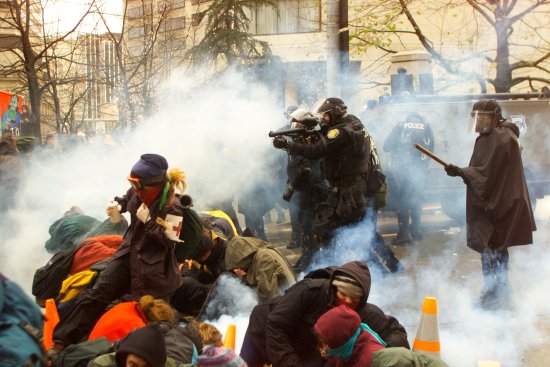
The Department of Justice has intervened in other cities in the past
In the wake of unrest in the city of Ferguson, Mo., the Department of Justice says it will investigate reports of excessive force by local police. The investigation is in its earliest stages, but the history of the federal government’s intervention in more than 20 cities over the past two decades provides an idea of what Washington’s approach to local police reform might look like if they find wrongdoing in the case.
In response to findings of police misconduct in the past, cities across the country have entered into agreements, called consent decrees, that have allowed the federal government to force police departments to enact policies that curb racial profiling, improper interrogation and illegal search and seizure, among other things. The exact terms and conditions vary in each case, and the deals are lifted only with the approval of a federal judge.
Here is a look at how federal intervention played out in four cities:
Seattle
When Seattle cracked down on protestors at a World Trade Organization meeting in 1999 the world took notice. Just over a decade later, the city’s police found themselves facing more allegations of improper use of force, this time from the Justice Department. The city’s consent decree required the city to rethink its firearm policies. Officers were required to carry less dangerous weapons and to utilize “de-escalation techniques.”

New Orleans
New Orleans, and its scandal-ridden local government, received attention for civilian deaths caused by police in the aftermath of Hurricane Katrina. It also received an unusually far-reaching consent decree. A 2012 Department of Justice investigation found multiple cases of illegal use of force that resulted in death, inappropriate use of “uncontrollable” dogs to find suspects, discriminatory targeting of minorities for arrest, and other violations. The decree mandated extensive officer training, new supervision requirements and data collection to solve the issue. Recent reports suggest that the police department still has a way to go.

Los Angeles
In 2001, a decade after the beating of Rodney King in 1991 and the riots that followed, the Justice Department entered into a consent decree with the Los Angeles Police Department. The beating was one of many allegations of misconduct by the LAPD. A letter to then-Mayor James Hahn from a Justice Department official outlined a number of areas of concern, including the LAPD’s use of excessive force and false arrests. The letter also said that the department lacked procedures to deal with the issues. The consent decree required that department to collect data on police actions like firearm use and its response to cases of resisting arrest. Under the plan, supervisors were then instructed to monitor officers’ action and report potential policy violations. After more than a decade of federal oversight, the consent decree was lifted by a judge in 2013.

Oakland
Federal involvement took a slightly different form in the city of Oakland. The city entered into a settlement with more than 100 plaintiffs in 2003 that mandated a number of police reforms. Ten years later the city acknowledged that it had failed to deliver on its end of the bargain and asked the federal government to help. A federal officer, whose powers included the ability to fire the chief of police, was appointed to oversee the department. The overseer also failed, and was removed by a federal judge this year.
